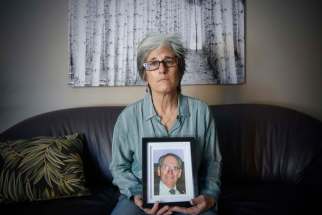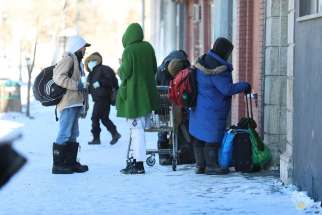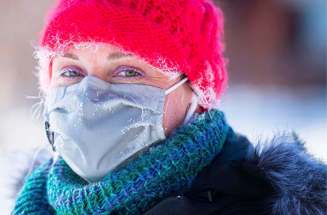Cold comfort Main Street Project offers warm place for city's homeless, but pandemic creates new level of agony
Read this article for free:
or
Already have an account? Log in here »
To continue reading, please subscribe:
Monthly Digital Subscription
$0 for the first 4 weeks*
- Enjoy unlimited reading on winnipegfreepress.com
- Read the E-Edition, our digital replica newspaper
- Access News Break, our award-winning app
- Play interactive puzzles
*No charge for 4 weeks then price increases to the regular rate of $19.00 plus GST every four weeks. Offer available to new and qualified returning subscribers only. Cancel any time.
Monthly Digital Subscription
$4.75/week*
- Enjoy unlimited reading on winnipegfreepress.com
- Read the E-Edition, our digital replica newspaper
- Access News Break, our award-winning app
- Play interactive puzzles
*Billed as $19 plus GST every four weeks. Cancel any time.
To continue reading, please subscribe:
Add Free Press access to your Brandon Sun subscription for only an additional
$1 for the first 4 weeks*
*Your next subscription payment will increase by $1.00 and you will be charged $16.99 plus GST for four weeks. After four weeks, your payment will increase to $23.99 plus GST every four weeks.
Read unlimited articles for free today:
or
Already have an account? Log in here »
Hey there, time traveller!
This article was published 26/01/2021 (1783 days ago), so information in it may no longer be current.
When the temperature drops below -30 C overnight, Sean will be safe and warm inside Main Street Project, having traded a bus shack for a shelter bed two nights ago after the cold snap descended on southern Manitoba.
“It was bad, man. It was cold but at least I had some blankets… Some people don’t even know. They don’t know how bad it really is. They think, ‘Oh I could handle one night.’ Then they’re sitting there and they can’t handle it. Within an hour, they’re crying,” he said.
Sean, standing on the Main Street sidewalk outside the shelter Tuesday, struggles to light a cigarette in the cold. The straps of a thin surgical mask are wrapped around his ears, but he’s pulled the fabric below his chin, revealing a bearded face.
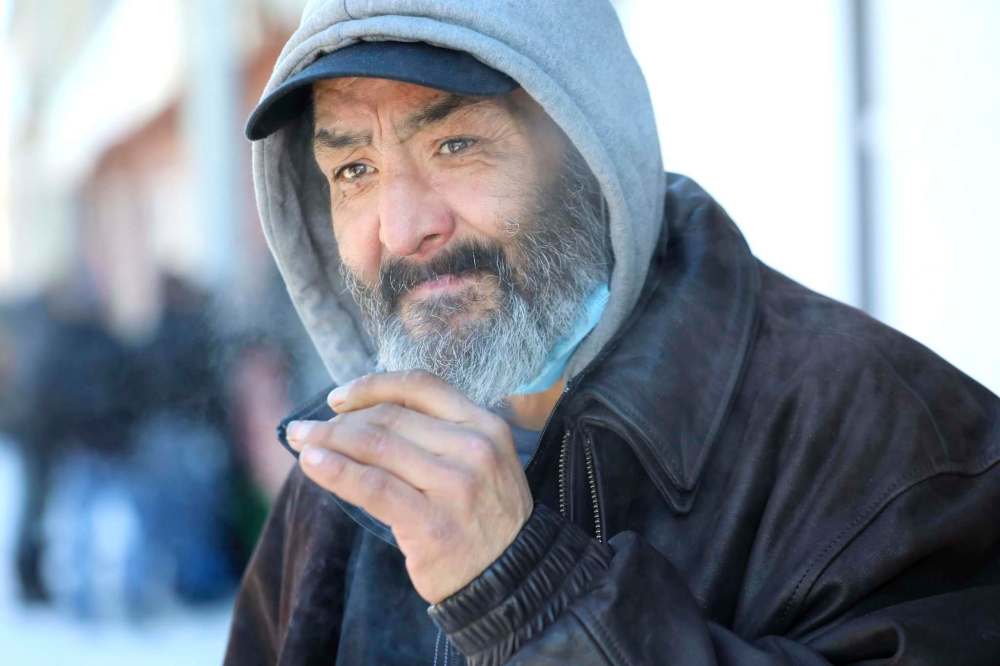
He is 48 years old and has lived in Winnipeg most of his life.
He said the COVID-19 pandemic has made life harder on people like him.
Because he spends most of his time near the Main Street strip, he didn’t know how many people were sleeping in bus shacks at night. It wasn’t until recently, while walking down Portage Avenue, that he saw many of them filled.
“I didn’t know how bad it was,” Sean said.
Sean is one of many Winnipeggers looking to escape the cold as the city, and other swaths of the province, deal with an extreme-cold warning. Environment Canada warned of -40 with the wind chill — or worse — Tuesday.
The cold snap is expected to last a couple days before temperatures improve. But in the meantime, the cold will see more people seeking out shelter beds, which will put further strain on a sector that’s already had to decrease bed capacity in order to implement social distancing during the pandemic.
Gordon Taylor, executive director of the Salvation Army Centre of Hope, said his facility is seeing an uptick in demand from the homeless population in response to the cold.
“We are running at capacity in our emergency shelter but have space in our transitional housing and continue to work towards moving people from emergency shelter into transitional housing to keep emergency beds open,” Taylor said in a written statement.
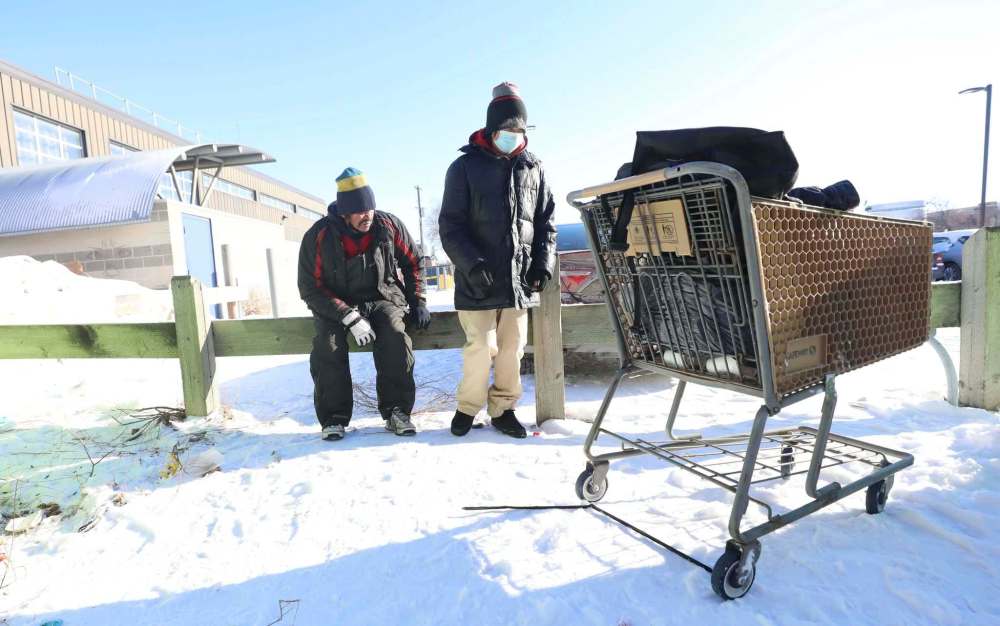
“We are also linked to other shelters so that we can refer people on if we are full.”
The risk to people sleeping unsheltered on the streets of Winnipeg during vicious winter cold snaps is well documented.
According to statistics previously released by the province’s chief medical examiner, 146 people died from exposure in Manitoba from 2004 to 2014. Nearly a third of those deaths occurred in urban areas, the majority of them in Winnipeg.
Such fatalities have also been seen in other parts of the country. On Jan. 17, Raphael Andre, a 51-year-old homeless man living in Montreal, was found dead in a portable toilet just steps away from a closed drop-in centre where he had previously stayed.
The Quebec coroner’s office is investigating his cause of death.
At the Manitoba Legislature Tuesday, Bernadette Smith, NDP MLA for Point Douglas, said the provincial government needs to do more to help people sleeping in bus shacks during Winnipeg winters.
“I left here last week and drove out of this parking lot and witnessed about six people right across the street in this bus shelter huddled with their belongings inside. You can’t leave this building without seeing people in (bus shacks),” Smith said.
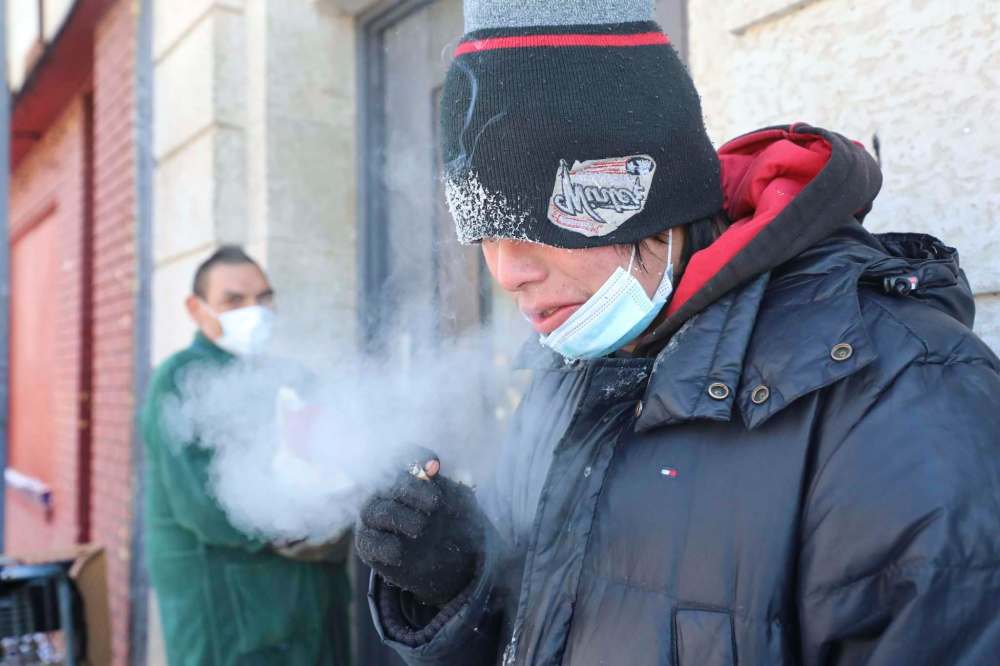
“We know there are lots of units with Manitoba Housing that aren’t being used. This province has stopped investing in fixing up these units which has left tons of Manitobans without shelter. They’re having to live in bus shacks. They’re resorting to that to stay warm. Shame on this government.”
Smith said the province should provide transportation to Winnipeg shelters and increase their funding so they can expand bed capacity.
“In -35 weather, you’re seeing 10-15 people in one bus shelter, and with COVID, that’s putting people at risk… It’s not just here. It’s all over. We need this government to step up and make sure that everyone has access to housing,” Smith said.
“It’s freezing out there. Even to be out there for five or 10 minutes, with the wind chill, people are freezing. And we need to make sure that this province knows their responsibility and does something about it, because it shouldn’t be up to citizens.”
Standing outside Main Street Project, Sean said he likes staying at the shelter, since he knows most of the people there. But if he hadn’t been able to get a bed, he said he doesn’t know what he would have done, given the temperature.
“It would be tough,” Sean says.
While strict lockdown measures have been tough on everybody, they’ve caused serious issues for people like Sean. He said many homeless people often rely on public spaces such as libraries or the skywalk, as well as restaurants and coffee shops, to escape the cold.
But with these places shut down for extended periods of time during the pandemic, he said people often have nowhere to turn but shelters and bus shacks.
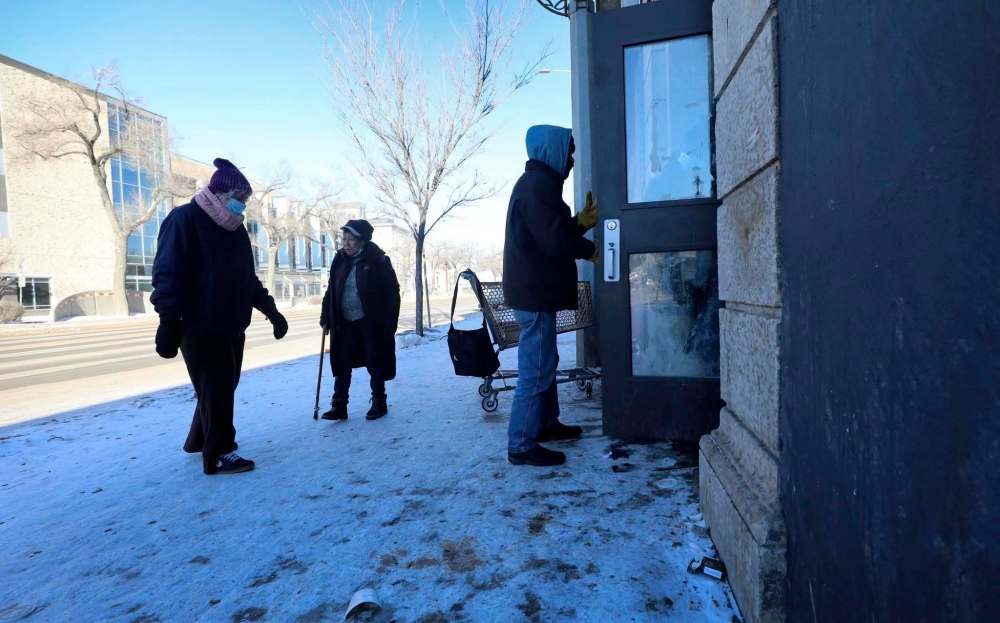
“I used to love that, going to have a coffee and warm up,” Sean said.
“You can’t even do that no more.”
ryan.thorpe@freepress.mb.ca
Twitter: @rk_thorpe

Ryan Thorpe likes the pace of daily news, the feeling of a broadsheet in his hands and the stress of never-ending deadlines hanging over his head.
Our newsroom depends on a growing audience of readers to power our journalism. If you are not a paid reader, please consider becoming a subscriber.
Our newsroom depends on its audience of readers to power our journalism. Thank you for your support.



